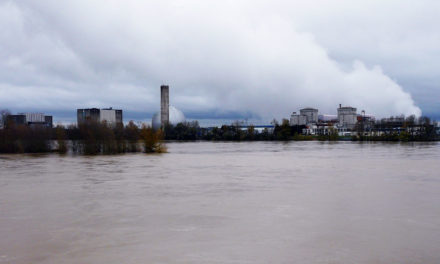In a new scientific review published by Nature, an open access journal, evidence was revealed demonstrating the resilience of our oceans despite the immense strain humans place on it. In fact, scientists believe that with the right measures in place, the oceans can be returned to their former glory within the next three decades.
From pollution to coastal destruction, the impact humans have had on our oceans has been far from positive. As one of the most important natural habitats, particularly when it comes to stabilising the climate, the protection of our oceans has been severely lacking. However, despite this neglect, the review claims that there are examples that the ocean and its inhabitants are slowly bouncing back.
“Our study documents the recovery of marine populations, habitats and ecosystems following past conservation interventions. It provides specific, evidence-based recommendations to scale proven solutions globally,” said Professor of Marine Science, Carlos Duarte, at the King Abdullah University of Science and Technology in Saudi Arabia.
One noteworthy example is the resurgence of humpback whales after a ban was placed on commercial whaling.
Read also: The Population of Humpback Whales is on the Rise
In addition, the proportion of marine species at risk of global extinction fell from 18% in 2000 to 11.4% in 2019. There is a lot to be optimistic about, however, scientists warn that we must act quickly, recommending that we implement measures ranging from protecting species to restoring habitats.
“We know what we ought to do to rebuild marine life, and we have evidence that this goal can be achieved within three decades. Indeed, this requires that we accelerate our efforts, and spread them to areas where efforts are currently modest,” said Duarte.
According to researchers there are nine key components to the recovery of our oceans: mangroves, fisheries, salt marshes, seagrasses, coral reefs, kelp, oyster reefs, megafauna and the deep ocean.
However, efforts in rebuilding oceans must also align with the battle against climate change which continues to raise sea levels and contribute to its acidification.
While experts say the challenge is certainly a large – and expensive – one, the benefits of it would be long lasting. “Failure to embrace this challenge, and in doing so condemning our grandchildren to a broken ocean unable to support high quality livelihoods is not an option,” stated Duarte.
- This Artist is Making the Underwater Arena His Canvas - 28th April 2021
- A Video Game that Promotes Peace and Conflict Resolution - 15th March 2021
- Netflix’s ‘Living Undocumented’ is a Difficult Series to Watch, and Exactly Why We Should - 9th March 2021






